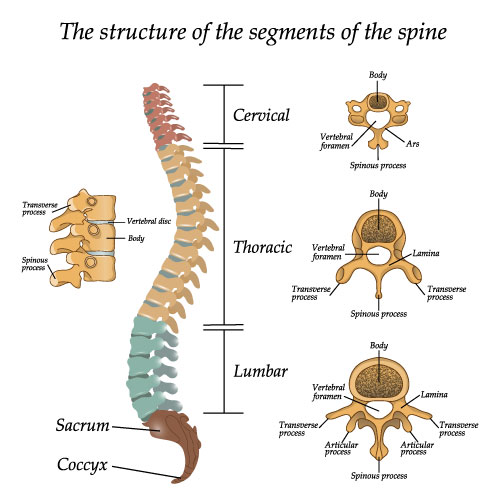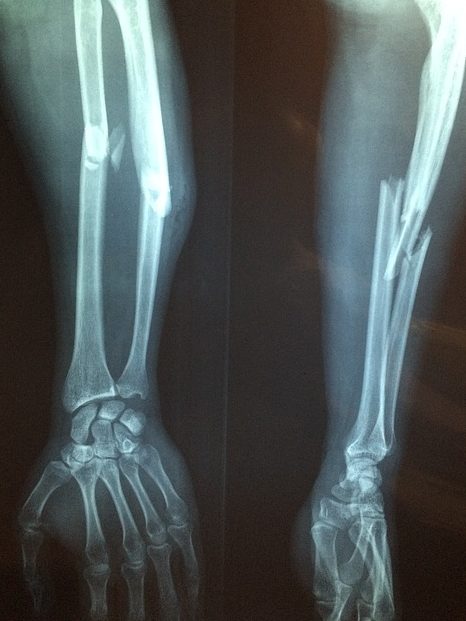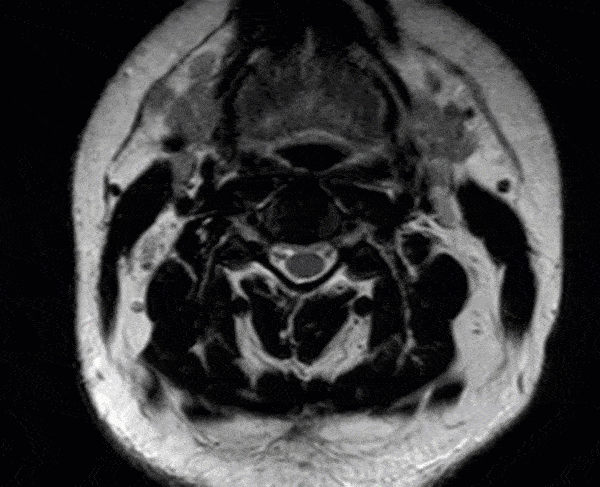- How Claims Work
- During Your Case
- Hiring an Attorney
- Attorneys
- About The Young Firm
- Helpful Info
- Resources
- Client Portal Hub
Get Answers. Move Forward.
504-680-4100
Understanding the hazards of common maritime injuries is crucial when considering your next steps. In the event of an injury at sea, you need to be aware of why your body hurts and the extent of your injury. Maritime accidents involve a wide range of serious injuries that can be difficult to diagnose.
Often, people with maritime injuries know something is physically wrong, but have trouble getting the correct diagnosis from a doctor. After years of working exclusively with injured maritime workers, we have a wealth of knowledge and experience regarding medicine and injuries, especially when it comes to the injuries that frequently occur on a vessel or offshore.
Over the years of working with victims of maritime injuries, our clients tend to have similar injuries. The most common maritime injuries include the following::
These injuries come with their own set of problems, tests, and surgeries, so each injury should be approached with care. No two injuries are identical, so no two injury claims will be alike. With those considerations in mind, there are certain patterns you can expect with these types of injuries.

One of the most common maritime injuries we encounter are back injuries. Roughly 40% of our clients have a back injury of some kind. Back injuries usually involve stress or pain in the neck or lower back. Doctors may refer to them as ‘spinal injuries’ because your spinal column connects your neck, thoracic and lower back areas. Between bony spinal sections, soft vertebral discs serve as cushions and help protect the spine from injury.
Usually, back injuries are the result of lifting heavy objects improperly. More often than not, these occur when people lift with their backs instead of their legs.
The most common spinal injury is a herniated vertebral disc, which is when one of the vertebral discs tear or bulge. This causes pain when the disc presses against the nerves that run up and down your spinal column.
In the event of a back injury, you may experience any of these symptoms:
Tests and surgeries for back injuries
Because back and neck injuries happen so frequently, there are many effective medical tests to help diagnose your injury. Once the exact type of spinal injury is determined, you can then decide if you will need back surgery or if some other treatment option may help you. One of our main goals for our clients is to:
Injuries involving the knees, ankles and shoulders are some of the most common joint injuries that can occur to a maritime worker. Maritime workers are regularly bending and stressing all of these joints.
The important thing to understand about joints is the function of tendons and ligaments. A tendon is a flexible connective tissue that connects your muscle to a bone, while a ligament is a tissue that connects a bone to another bone. Ligaments and tendons are subject to regular pressure and ‘torque’ when maritime workers lift, carry, and pull heavy items all day. The constant stress from manual labor often causes tears or rips in tendons and ligaments.
There are many types of ruptures or tears that can occur in a knee injury. Several different tests can be used to diagnose a tendon or ligament injury, and treatments for injuries to your knees, ankles, and shoulders can include a variety of surgeries.

Severe fractures and breaks to bones are common when working offshore. We have helped many clients that have suffered multiple broken or fractured bones, often referred to as a “crushing type” injury. Most of the time, broken bones can heal back together. The chief concern with fractures and breaks is when they don’t heal properly, and healing from a bone injury can be painful. Fractures often require plates and screws to be used to hold the bones together to ensure they heal properly.
Sadly, one of the worst injuries that can be caused by severe breaks, fractures, and crushing type injuries is a nerve injury condition known as complex regional pain syndrome (CRPS), previously called reflex sympathetic dystrophy (RSD). Complex regional pain syndrome involves permanent nerve damage resulting from the fracture or crush, and the nerves continue to send pain signals long after the accident has occurred. Complex regional pain causes several distinct, painful symptoms.
Brain injuries are extremely complex and are different from other injuries. They often require more medical attention than other types of injuries, often with higher costs. Your brain controls every function of your body and even mild imacts to the head can cause a brain injury.
After a head injury, you might experience any of the following:

While some doctors (especially many ‘company’ doctors) will argue that a brain injury rarely occurs unless the person loses consciousness. In our years of experience with clients, we have found this to be untrue. The brain is sensitive, and what may seem like a minor trauma to your head could have long-lasting negative effects. A high-power 3T MRI shows the brain in great detail, often revealing the damage in black and white. This test has helped us recover fair compensation for many of our clients who suffered serious blows to their heads.
Brain injury patients often need sophisticated, detailed life care plans to outline their medical needs for the rest of their lives. The law does not require your spouse or family member to care for you if you have memory problems or difficulty taking care of yourself. Instead, the cost for all these needs must be calculated through a life care plan, which often adds up to millions of dollars. If your spouse or family member wasn’t there to help you, how much would it cost to make sure you were safe and could live on your own?
The clients we’ve helped who suffered serious burns have been some of our most tragic, but emotionally rewarding cases we’ve worked on. The pain and suffering experienced by burn victims is often unfathomable,, and helping them move to a better future is one of the most important roles we fulfill as maritime injury attorneys.
There are many types of burn injuries, each with its own degree of severity. When your skin suffers serious burns, your body is fighting itself. The healing process often requires that the burned skin be scraped off your body. Skin grafts may be used to cover your burned areas, but these never heal as well as your original skin. And as the skin heals, it is often cut and ‘released’ when it pulls too tight, which causes more pain.
Nightmares, PTSD and depression can accompany any serious burn injury. The event itself is extremely traumatic and many burn victims experience ongoing mental health issues and challenges.. Additionally, long-term burn victims may experience a number of physical problems related to their burns.
Most maritime industry jobs involve working with electricity. Electricity and water do not mix, and electrical equipment and wiring aboard a vessel can corrode from exposure to seawater. , This often presents a serious risk of injury to the workers aboard the vessel. Electric shock occurs when the worker comes into direct contact with an electrical energy source. The electrical energy flows through the body, which causes damage to the heart and nerves. Electric shocks are extremely painful and can be lethal.
Symptoms of electric shock vary, and are based on the voltage and strength of the current. At first, there may be no symptoms or there may be immediate skin burns where the current enters the body. Other electric shock symptoms include the following:
If the victim has been thrown by the electrical shock, there may be additional injuries from the fall including brain injury, spinal cord injury and broken bones.
Emergency medical care should be provided immediately following an electric shock. If the victim’s heart has stopped, a second shock from an AED can prevent death. Even if there are no visible injuries, the victim must see a doctor as the heart, nerves, muscle or brain can sustain serious and permanent damage from the electric current.
Visible injuries will be treated as well. If it was a minor shock, the seaman may make a full recovery. Large shocks can leave a maritime worker severely and permanently disabled.
Defective equipment on ships, tankers, barges, offshore oil rigs and other vessels can also cause serious electrocution injuries to seamen. When a seaman is injured by unsafe wiring or defective equipment aboard a vessel, he has the right to pursue a Jones Act lawsuit. If you have been injured by an electric shock while working aboard a vessel, you may be eligible to file a Jones Act claim for your injury. If you have lost a loved one to electrocution at sea, you may be able to file for compensation under the Death on the High Seas Act.
We often tell injured workers who call us that their claim has two parts to it:
Understanding the extent of your physical injury after your maritime accident is a key part of understanding the full amount of compensation you deserve. Often your attorney will need to know as much medicine as law so he can help you recover what you truly deserve.
At The Young Firm, we are 100% focused on Jones Act and maritime injury law cases, and we understand claims like yours because we have handled so many of them. We are well aware of the specific requirements that you, as a victim of a maritime accident, have, and we can help you recover your lost benefits and get you compensation for damages.
Schedule your free consultation today! If you have questions about maritime injuries and how to receive fair compensation, contact a lawyer from The Young Firm at 504-680-4100.
Related articles to maritime injuries: